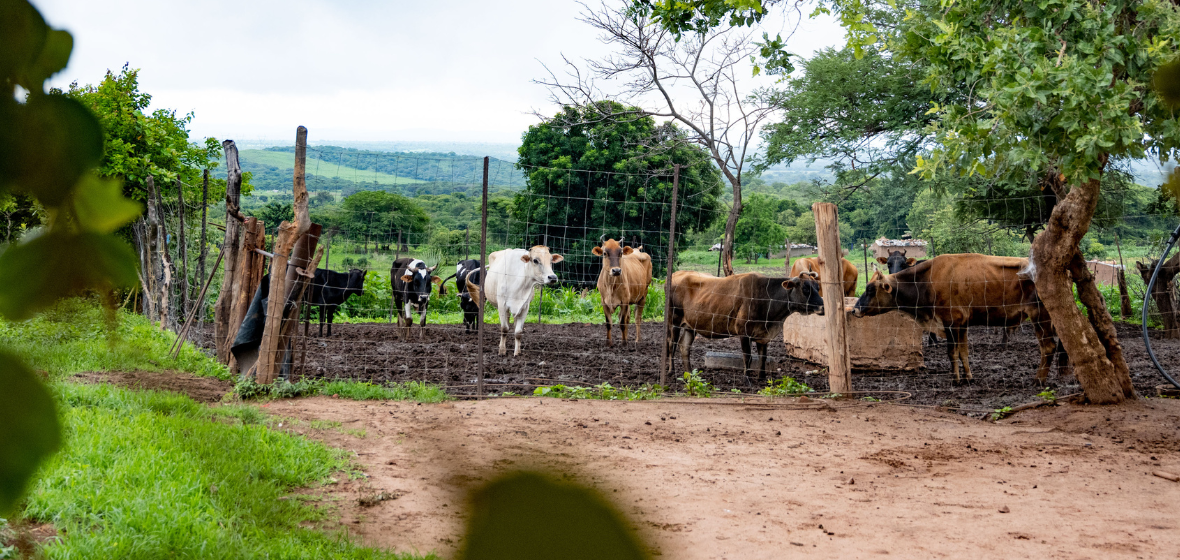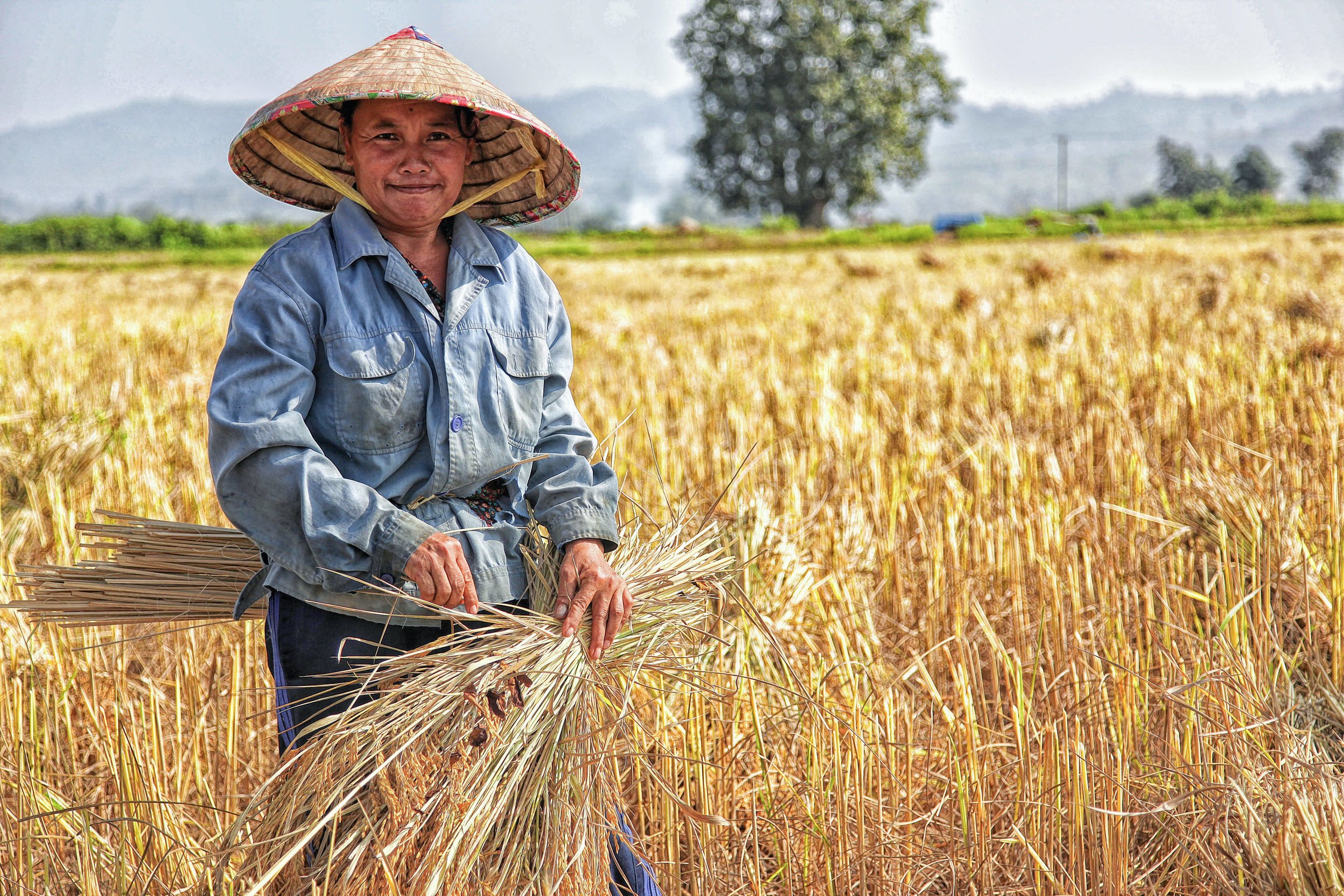
BLOGS, ARTICLES AND NEWS
Get updates directly from the CA4SH Global team and stakeholders
Climate-Smart Agriculture from the Soil Up: The Global CSA Conference
The Global Climate-Smart Agriculture (CSA) Conference is more than a knowledge exchange platform; it is a platform to incite climate action in agriculture. Immediately preceding the UN Climate Conference (UNFCCC COP30) taking place in Belem, Brazil, organizers of the 2025 CSA conference saw this year’s assembly as a critical opportunity to align on the future of food and agriculture ahead of COP30.
As an organization with action as a primary tenet, the Coalition of Action 4 Soil Health (CA4SH) was invited to co-chair the Soil Health and Plant Nutrition thematic session with partners from the International Fertilizer Development Center (IFDC). The session comprised two sub-sessions on 5th and 6th November, dedicated to finance and technology, respectively. Below, we summarize the innovations and key messages shared in these sessions, and chart a way forward for soil health at COP.
Science of Scaling Biosolutions for Soil Health
As Brazil prepares to host COP30 in Belém, CGIAR Climate Action, together with the Brazilian Ministry of Agriculture and Livestock (Ministerio da Agricultura - MAPA), Embrapa, and CGIAR Multifunctional Landscapes, are convening a series of high-level dialogues to put biological solutions at the center of climate action in agriculture.
This webinar showcased how biological nutrient management technologies can be mainstreamed across cropping systems through evidence-based solutions that align science, policy, and practice. By highlighting innovations in phosphorus solubilization, microbial inoculants, and integrated crop-livestock-agroforestry systems, the session aimed to catalyze increased investment from governments, private sector actors, and development partners while demonstrating concrete pathways for farmers to reduce input dependency and enhance soil health at scale.
#COPSoil in Action: CA4SH drove the needle forward for soil health at UNFCCC COP29
11-22 NOVEMBER 2024: The UN Climate Convention COP29 was held in Baku, Azerbaijan, themed In Solidarity for a Green World. The Coalition of Action 4 Soil Health (CA4SH) is a motivated, multi-stakeholder coalition working to strengthen, facilitate and accelerate the adoption and scaling of soil health restoration practices. Soil health drives productivity and economic growth, rural livelihoods, biodiversity protection, and mitigation and adaptation to the climate crisis.
At COP29, CA4SH convened members, partners, and other stakeholders to underscore the critical importance of including soil in the climate proceedings. CA4SH held and participated in several sessions that teased apart the intricacies of scaling global soil health on the ground through finance, policy, support for farmers and land managers, and more. Keeping soil health on the climate agenda is an overarching objective of CA4SH, and at COP29, the power of multistakeholder voices was heard. Read on for an overview of our engagement!
Eleven Facts about Soil Carbon with Professor Pete Smith
This is the first in our series of interviews with the LUNZ Soil Health and Carbon Dynamics TAG community, in which we explore the key themes we’ll be working on over the next 40 months.
In this instalment, TAG co-leads Ellen Fay (Sustainable Soils Alliance) and Professor Pete Smith (University of Aberdeen) dig into some of the challenges around soil carbon, including how it relates to soil health, how it is measured, where its greatest opportunities lie and its role in land use change and net zero.
The full interview can be viewed on the LUNZ YouTube channel here, or read on for a summary of the key takeaways.
Harnessing the Power of Biochar for Global Soil Health and Beyond: Insights from the International Biochar Initiative
In an era where soil degradation threatens food security and environmental stability worldwide, the International Biochar Initiative (IBI) is at the forefront of promoting biochar as a circular solution. The 2023 Global Biochar Market Report, co-authored with the US Biochar Initiative (USBI), presents an in-depth analysis of the biochar industry’s growth and its crucial role in improving soil health on a global scale.
CA4SH Finance Webinar: Investing in soil health from the ground up
From afar, scaling soil health by switching from traditional monocrop agricultural systems to regenerative systems may seem as easy as planting the right plants in the right spot. However transitioning to new systems usually sees farmers’ yields decrease before they increase, which can be a limiting factor for farmers who don’t have a financial cushion to fall back on. Support is needed to help them bridge the gap.
CA4SH is a multi-stakeholder partnership of member states, the private sector, research institutions, civil society, farmer organizations, multilateral organizations, NGOs, and more. Drawing on this wealth of knowledge, we organized the second installation of our 2024 Webinar Series: The road ahead for soil health action to explore different mechanisms to invest in soil health, making sure these investments reach smallholder farmers.
CA4SH at UNEA-6: Multistakeholder action to foster an enabling science, policy and business environment to scale soil health globally
From 26 February to 1 March 2024, the sixth session of the United Nations Environment Assembly (UNEA-6) took place at the UN Environment Programme (UNEP) headquarters in Nairobi, Kenya, to discuss global environmental policy amongst the 193 Member States.
The discussions centred on how multilateralism can help tackle the triple planetary environmental crises of climate change, nature and biodiversity loss, pollution and waste. Luckily, we know well of a solution to these challenges and, indeed, all 17 of the UN Sustainable Development Goals: scaling soil health, globally.
Learn more about CA4SH engagements at UNEA-6.
Op-Ed: The EU’s 2040 climate targets and strategy must prioritise farmers
“Setting ambitious climate targets is great, achieving them is even better. The European Commission can be commended for setting its 2040 aim of a 90% reduction in greenhouse gas (GHG) emissions from 1990 levels.
To achieve the target, yesterday the Commission has proposed a significant scale-up of carbon removals on the path to climate neutrality.
Yet before waiving the victory flag for ambition, we must acknowledge that the EU is already struggling to meet the majority of its climate and energy 2030 targets and there are significant policy implementation gaps post-2030.”
By Erica Johnson (External Affairs Manager of Agreena) and Zsolt Lengyel (Secretary of the Board of the Institute for European Energy & Climate Policy)
What is biochar? Why an ancient farming technique could help fight climate change
“A new study estimates that biochar could capture as much as 3 billion metric tons of CO2 each year. Here’s how the process works.”
Read the full story from fastcompany.com
By Adele Peters
Biochar offers an accelerated pathway to global decarbonization, says new research
“The first-of-its-kind data highlights biochar’s potential to scale carbon removals as a win-win solution for people and the planet.
Biochar can potentially remove up to 6% of global emissions annually – the approximate equivalent of 3 billion tonnes of CO2 or the total emissions of 803 coal-fired power plants in one year.
Biochar also has a minimum removal potential of 10% in over 25 countries, concentrated in Africa, South America, and Eastern Europe, and can potentially reduce carbon emissions by over 30% in Eswatini and more than 20% in Malawi, Argentina, and Ghana.
The greatest carbon dioxide removal (CDR) potential – rests with the world’s biggest emitters, including China, the United States, Brazil, and India, who can chart a pathway for sustainable emissions reductions through biochar.”
Read the full article from the International Biochar Initiative
The Scientific and Technical Committee of the International "4 per 1000" Initiative launches the Soil Carbon Science Webinar Series
In order to foster scientific exchange on recent research and to feed into ongoing scientific debates around Soil Health and Soil Carbon Sequestration, the "4 per 1000" STC launched this new webinar series on September 7 with the webinar "Is there a limit to soil organic carbon sequestration?". This first insightful scientific webinar focused on soil carbon saturation.
This is why soil health is key to mitigating the climate crisis
“A recent study has found that more than half of Earth's species live in the soil, with the study finding it was the world's most biodiverse habitat.
The importance of healthy soil around the world was the focus of a panel chaired by Tania Strauss, the World Economic Forum’s Head of Food and Water, at the Forum’s 14th Annual Meeting of the New Champions (AMNC) in Tianjin, People’s Republic of China.”
Read the full story from the World Economic Forum












